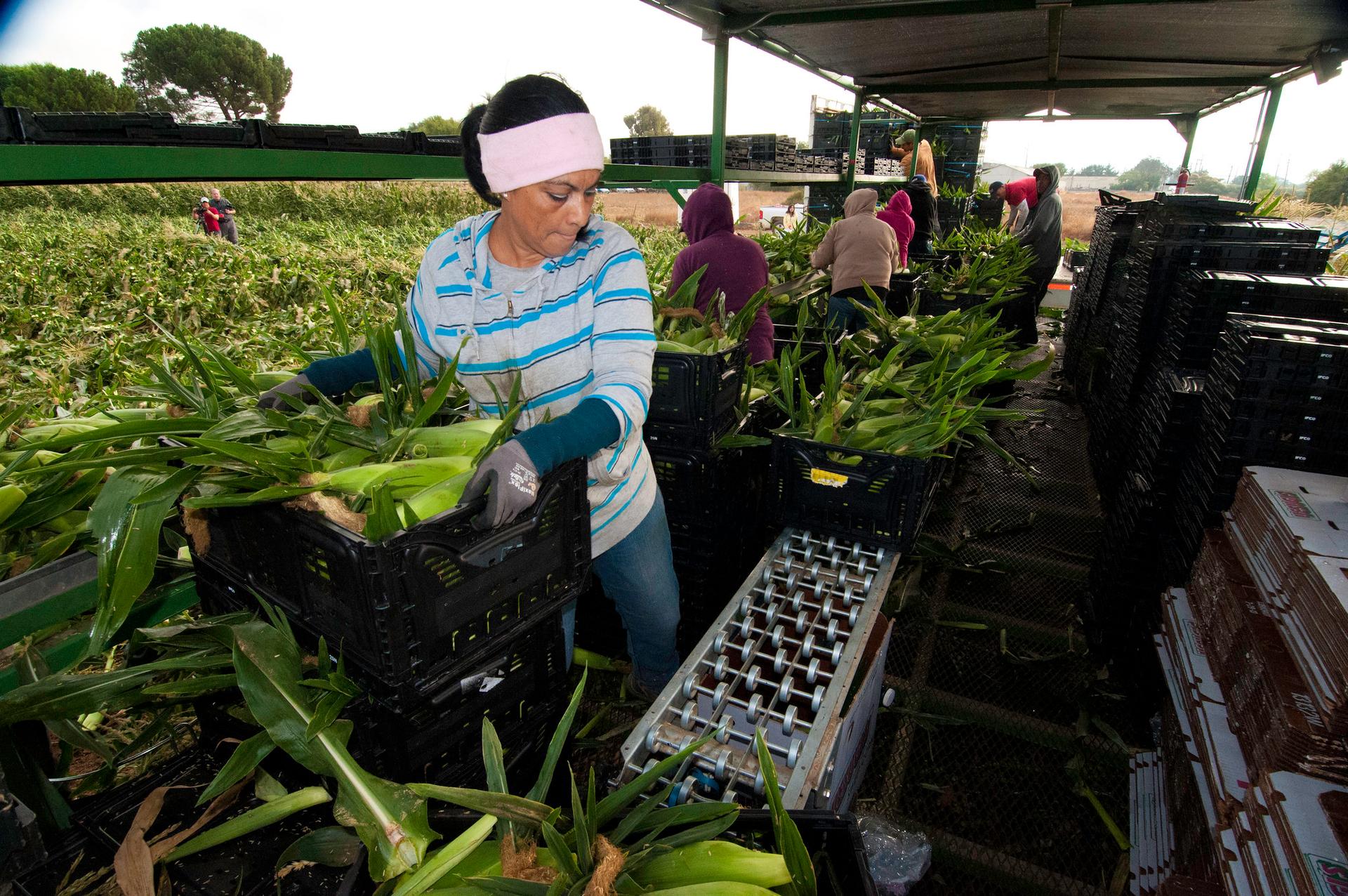Migrant farmworkers have been deemed essential during the COVID-19 pandemic so that they may continue to tend and harvest the crops that feed America. Yet most of these workers don’t enjoy essential benefits and worker protections, such as a minimum wage, overtime pay and access to health insurance — or workplace protocols that would prevent them from contracting the virus itself.
“We’ve all seen the empty shelves of the supermarkets, of paper goods and toilet paper and so on. But imagine if the pandemic takes hold in the farmworker community, what would happen to the nation’s food supply,” says Marc Grossman, a spokesperson for United Farm Workers of America (UFW).
Related: Food supply logistics need a coronavirus ‘reset,’ says UN economist
Even before the pandemic, Grossman points out, farmworkers faced daunting challenges.
“We know that they’re mostly immigrants today, in very low-paying jobs. With the exception of a small number that are protected by union contracts, they have few, if any, benefits,” he explains. “They must live, commute and work in very close quarters, often in substandard, unsanitary and crowded conditions.”
“We know from the US Department of Labor that at least half are undocumented, which makes them even more vulnerable to abuse,” Grossman adds. “All of these factors make them uniquely vulnerable to the pandemic.”
When the pandemic began, Grossman says, the UFW went directly to individual growers who are under a union contract to discuss altering picking practices and styles and to implement other social distancing practices, even if productivity was reduced. The constructive response from these companies only highlights the urgent need for more widespread action at non-union companies, Grossman says. Some employers are stepping up — but many others are not.
Related: Farmworkers are now deemed essential. But are they protected?
California leads the nation in protective laws and regulations for farmworkers — everything from minimum wages and hours to pesticide protections to sexual harassment, Grossman notes, but “there is too often a gap between what the laws and the regulations and the government agencies require and the actual enforcement and implementation in the fields.”
What’s more, the great majority of farmworkers in non-union companies do not have access to health care. Nor are many of them able to receive paid sick leave should they fall ill, Grossman says.
“One of the problems with paid sick leave is that some growers have made it difficult for workers to actually claim it,” he explains. “Sometimes they require a doctor’s note. But since most workers have no health care, they don’t have doctors. Or some companies have a waiting period of 30 or 90 days before new workers can claim sick leave benefits — if they exist. All of those things represent challenges that must be overcome quickly if paid sick leave is going to become a reality [for these workers].”
The 1938 Fair Labor Standards Act, the federal law from the New Deal era that granted industrial workers simple benefits like overtime after an eight-hour workday, excludes farmworkers. “It was only in 2016 that the UFW got a law passed in California that provides phased in overtime after eight hours a day, over a four year period,” Grossman notes.
In addition, most farmworkers, unlike some of their counterparts in the retail food industry, are not receiving additional hazard pay.
On top of all of this, many of these workers face the daily fear of being deported, even while being deemed essential to the nation by the same government threatening to deport them.
“I believe ICE has indicated that they’re holding off on enforcement actions in the interior of the country, but remember: For years, there has been a palpable fear in foreign workers just of going to work,” Grossman says. “So, in addition to the danger of exposing themselves and their family members to infections, many undocumented farmworkers find it very difficult to abandon their fear of being apprehended and deported.”
Last December, the US House of Representatives passed an agricultural immigration bill — for the first time in decades, Grossman says — that would allow undocumented farmworkers already in the country to earn the legal right to stay permanently by continuing to work in agriculture. The bill passed the House on a bipartisan vote and is now in the United States Senate.
“It would go a long way toward eliminating the fear and the terror that undocumented farmworkers live with every day,” Grossman says.
Grossman hopes that during the pandemic Americans will examine their society and look more closely at equity issues, like the denial of essential rights and benefits to farmworkers.
“We’re hoping that people use this as an opportunity for much-needed reflection on eliminating the inequities and the injustices that have plagued farmworkers and other people who are vulnerable,” Grossman says.
This article is based on an interview by Bobby Bascomb that aired on Living on Earth from PRX.
